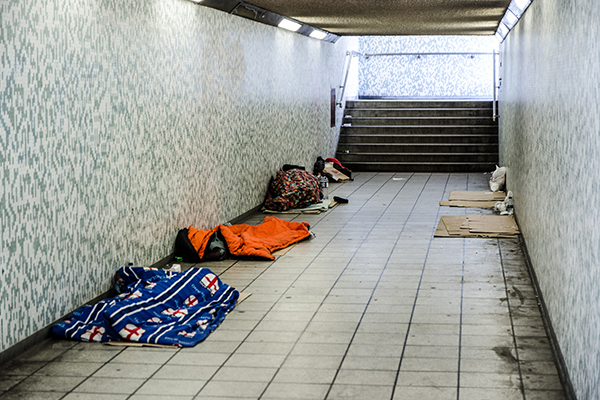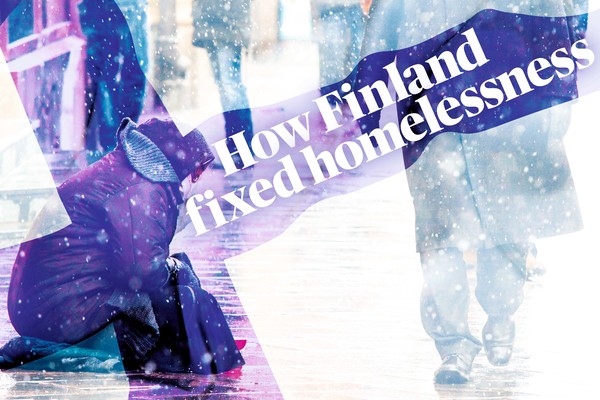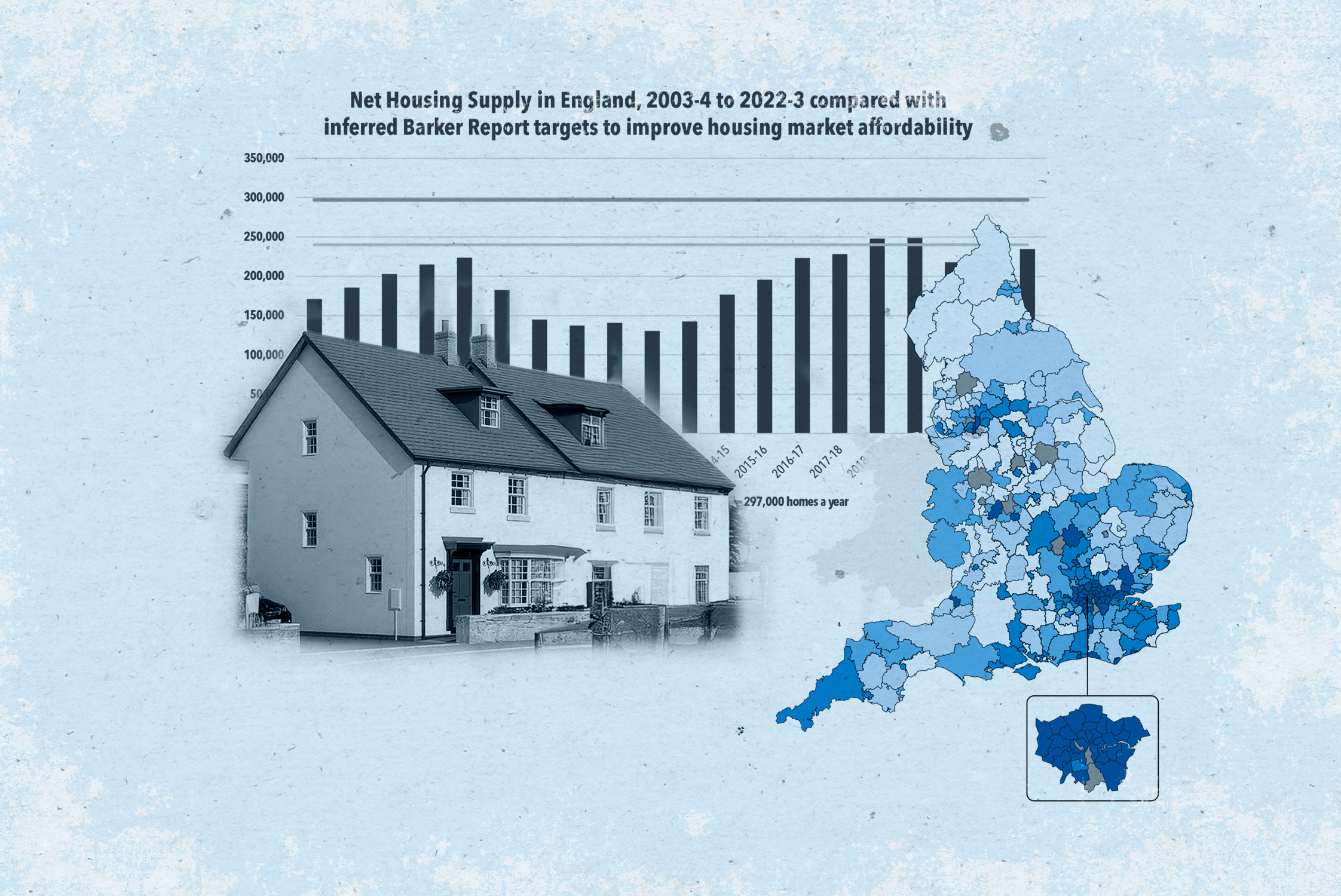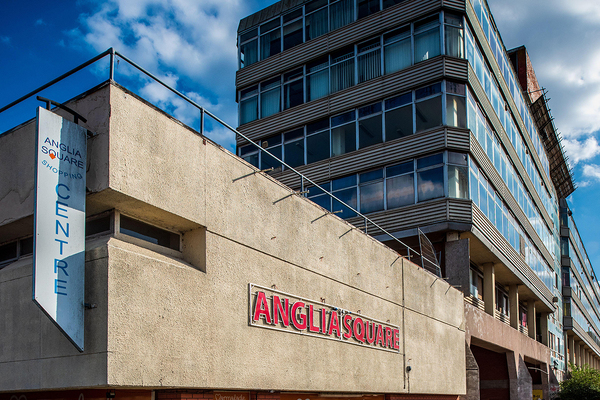You are viewing 1 of your 1 free articles
Homelessness Reduction Act: is the funding sufficient?
The Homelessness Reduction Act aims to help councils tackle homelessness. But some local authorities are concerned they will not receive enough government support to meet demand. Jacqueline Messih takes a closer look
Homelessness is on the rise. Last week, official statistics showed a staggering 65% rise since 2010 with 79,190 households were in temporary accommodation on 30 September, including 121,360 homeless children.
And today the influential Public Accounts Committee (PAC) released a damning report on the government’s attempts to tackle the issue saying its “limited action” has “lacked the urgency that is so badly needed and its ‘light touch’ approach to working with the local authorities has clearly failed”
But over the last 12 months the sheer scale of this problem has caused government ministers to take some belated action. This year, new legislation hit the statute books aimed at finally turning the tide on rising homelessness.
The Homeless Reduction Act, which will come into force in April, is designed to prevent people from becoming homeless and to give councils more control to tackle the issue.
Under the current system, councils will intervene once a tenant has been given a 28-day notice period; now this has been extended to a 56-day period which allows for earlier intervention and more time to rehouse tenants and consider reviews.
The idea is to prevent households becoming homeless at all – rather than scrabbling to deal with the issue once it is too late.
The Homeless Reduction Act, which will come into force in April, is designed to prevent people from becoming homeless and to give councils more control to tackle the issue. Under the current system, councils will intervene once a tenant has been given a 28-day notice period; now this has been extended to a 56-day period which allows for earlier intervention and more time to rehouse tenants and consider reviews. The idea is to prevent households becoming homeless at all – rather than scrabbling to deal with the issue once it is too late.
But as is so often the case, the question of cash is hampering progress. The government has said £61m will go towards helping councils across the country, plus £11m in London, as they face their new responsibilities.
Payments will begin in early 2018 and the east London borough of Newham, which has London’s highest level of homelessness, expects £1,605,838 – the most of all councils. Funding would be spent on staffing, training, rent in advance, rent deposits, rent top-ups and arrears as well as new accommodation schemes.
“We do not expect the… extra funding from government in relation to the introduction of the Homelessness Reduction Act to be anywhere near enough to meet the anticipated increase in demand.”
Local authorities will work closely with landlords to secure accommodation before they become homeless, regardless of priority or whether they are “intentionally homeless”. The government will allocate “new burdens” funding in order to support this change.
Although councils support this legislation, with rents rising and not enough social housing there is concern. Local authorities in England accepted 14,400 households as statutorily homeless in 2017, down 1% from the figure of 14,600 in the previous quarter and down 5% compared to the same quarter last year. Of those, 4,040 were in London, accounting for 28% of the England total. According to housing charity Shelter, Newham has the highest level of homelessness, at 13,607.
Homelessness is more than double in London compared to the rest England and London boroughs fear government funding and support will be lacking, arguing more funding is needed to implement the act. The boroughs have said publicly that the act will not help turn the tide of homelessness unless more funding is made available.
And there are also concerns in hotspots outside London. Bernard Priest, deputy leader of Labour-led Manchester City Council, says: “We do not expect the comparatively small amount of extra funding from government in relation to the introduction of the Homelessness Reduction Act to be anywhere near enough to meet the anticipated increase in demand which, based on experience elsewhere, could be up to 60% for prevention and 20% for those owned a statutory duty.”
In Labour-led Birmingham, Peter Griffiths, cabinet Member for Housing and Homes, said: “The Housing Reduction Act will mean an increase in approximately 30 per cent demand on local authorities and a potential of 15 per cent increase in temporary accommodation. The £1.76m funding that Birmingham City Council is expecting to receive from DCLG will assist us to implement the new legislation, but it will not fully cover the extensive work we need to do. We will have to purchase a new IT system; commission new services to ensure adequate prevention tools are available; engage and incentivise the private rented sector; provide extensive training for our existing staff and ensure that adequate support is provided to those presenting as homeless. Our plan is to seek additional funding and we are currently working through how this will be achieved.”
A spokesman for the Department for Communities and Local Government said: “This government is implementing the most ambitious legislative reform in decades – the Homelessness Reduction Act - which will require councils to provide early support to people at risk of being left with nowhere to go. We are also investing over £1bn until 2020 to tackle homelessness and rough sleeping.”














